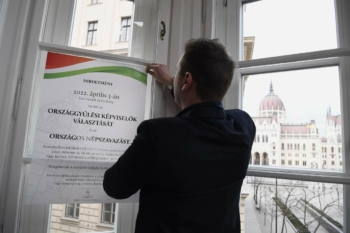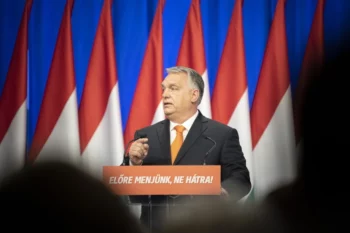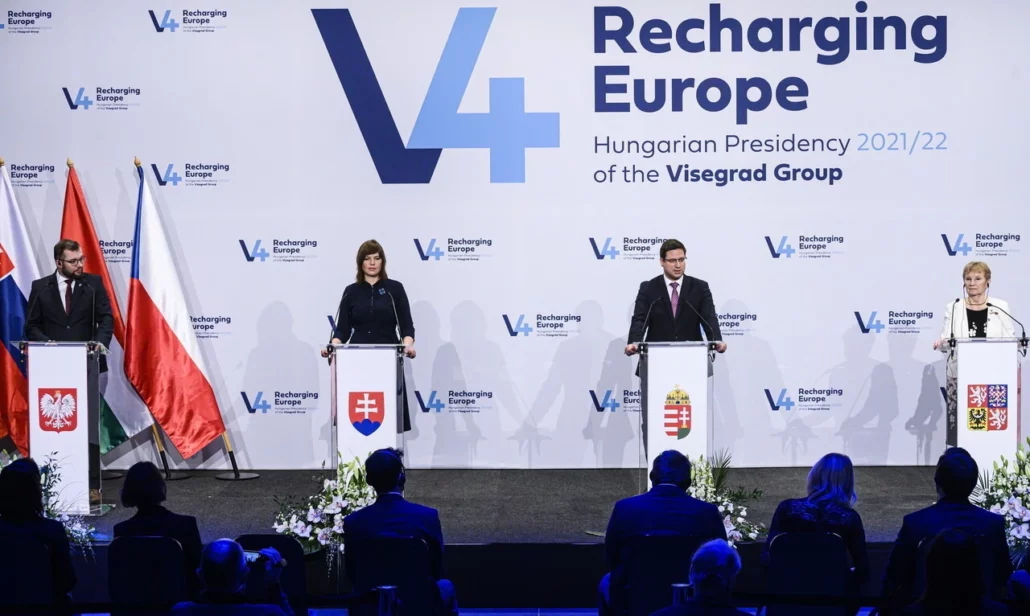Hungary’s Chief of Staff: V4 cooperation reliable in long term
The Visegrád Group cooperation is reliable, non-partisan, and respects the interests of all member states, and has become an important factor in the European Union, the Hungarian prime minister’s chief of staff said on Friday in Budapest.
Gergely Gulyás told a press conference after a meeting of the EU affairs ministers of the Czech Republic, Hungary, Poland and Slovakia that all V4 states were committed to the EU, and see no alternative to “institutional European cooperation”.
At the same time, Gulyás noted that cohesion, the reduction of development gaps between various EU member states, is enshrined in the Lisbon Treaty as a primary objective of the EU.
The goal of Friday’s meeting, Gulyás said, was to “coordinate and share best practices at a time of intense negotiations with the European Commission” on funding for the 2021-2027 financial cycle.
The Visegrád countries have mostly submitted their planned operative programmes, “and technological and professional talks are proceeding well with the EC”. “If politics doesn’t interfere, we hope to achieve a partnership agreement on the next financial cycle within one or two months,” he said, adding that this was important because most member states tended to pre-finance their projects.

Read also Will Hungary send soldiers to fight in Ukraine?
He said the conclusion of the partnership agreement was “not behind schedule”, noting that in the previous funding cycle, the signing of the pact had come a year and a half after the approval of the budget.
Concerning the EU’s post-pandemic recovery fund, Gulyás said the reason why member states had agreed to jointly take out a loan was because it was a “one-time solution” which the EU had said was necessary for the economic recovery.
Gulyás also said that there was a “serious distrust” of the EC on the parts of Hungary and Poland because the Commission had yet to approve their recovery plans “for political reasons”. He added, at the same time, that the agreement with the EC could be signed soon, and the projects were being pre-financed.
“If we have to wait for the Hungarian elections for this to happen then so be it,” he said.
Gulyás said the V4 were effective when it came to the drawdown of EU funds from the previous funding period. Hungary has drawn down 71.9 percent of the funds it is entitled to, he said, noting that it was the fifth most effective member state in this respect, “competing with Poland”.
He said V4 cooperation on cohesion policy had always been close, adding that this was “a big help in the talks with the EC”.

Read alsoSecretary: Hungary’s electoral system among most transparent
“We trust that it will remain that way in the future as well, and that the region will remain an engine of the EU’s economic growth and progress,” he said.
Daniela Grabmullerova, the Czech deputy minister for regional development, said V4 cooperation in “delicate issues concerning the European Union” was inspiring. The Czech Republic will draw on that experience during its upcoming EU presidency, when it aims to bolster the development of cohesion policy, she said.
Grabmullerova noted that cohesion funds amounted to 40 percent of the resources for community investments in the Czech Republic. The government hopes that the EU will approve its programme during the spring, she said.
Slovak Deputy Prime Minister Veronika Remisova called for the continuation of the cohesion policy, “an important pillar of the European Union”. Slovakia is preparing apace its operational programmes and the cooperation agreement with the EU, she said. Increasing the efficiency of the use of EU funds by curbing the red tape surrounding the resources is one of Slovakia’s priorities in the process, she said. Funds from the EU’s Recovery and Resilience Facility (RRF), set up to offset the economic fallout of the coronavirus pandemic, will be used to bolster vulnerable sectors, especially SMEs, she said.
Polish regional development minister Grzegorz Puda praised Hungary for its “exemplary use of the cohesion funds which has yielded spectacular results in the past few years.” The cooperation of the Visegrád countries is very useful for all parties, he said.

Read alsoEU court ruling against PM Orbán’s “toxic populist brand”?
Source: MTI
please make a donation here
Hot news
What happened today in Hungary – 26 July, 2024
Drama: number of births in a 20-year low in Hungary
Yay or nay? – 6 odd Hungarian delicacies that make our skin crawl
Budapest tourism “exploded” this past weekend
Container transport in Budapest may stop: How will this affect Hungarian economy?
Minister: Hungary will protect its territory by every means possible




